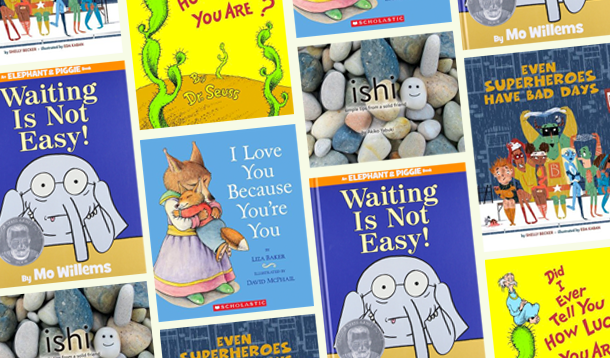
Do you have a Negative Nelly in your house? Around kindergarten age, my younger son unexpectedly turned dark and brooding. He would overreact to small things, dwell on his mistakes and generally take a pessimistic view of everything. Although his teacher and I both encouraged him to be positive and look on the bright side of things, he didn’t seem to be coming around.
One day when he was particularly frustrated, I tried a different tactic and declared an impromptu “snuggle up and read” session. I discovered an old classic on the bookshelf that we’d never read before: Alexander and the Terrible, Horrible, No Good, Very Bad Day by Judith Viorst. In the story, Alexander is having the kind of day where everything goes wrong, and firmly believes that moving to Australia will solve his problems. It indulges the child-like mentality of being stubbornly crabby about everything, while subtly exposing it for how ridiculous it is.
Interestingly, while the book isn’t exactly a feel-good one, my son seemed to relate to Alexander’s sour attitude and became less grumpy himself. It was as if he no longer felt alone in his frustration. This prompted me to seek out similar picture books about negative emotions, and how to cope with them. Here are five that I would highly recommend.

by Akiko Yabuki
The words and photographs in this book are refreshingly uncomplicated and incredibly effective. The premise couldn’t be simpler: an oval-shaped white rock with a smiley face experiences dual situations in every spread. On the left-hand page, it describes some sort of challenging situation; and on the right side, a positive response with a “self care” vibe. Many of the photos are taken in nature and have an instant calming effect. Because the hero of the story is an inanimate object with no gender or ethnic background, the appeal is universal.

by Dr. Seuss
Reading a Dr. Seuss book is always a pick-me-up, and in this one, an elderly man provides perspective to a young boy by pointing out that there are others out there whose lives are far, far worse. It’s a fun read because the undesirable situations have the classic tongue-twister names and zany settings you would expect from a Seuss book. Amid the examples from fictional lands, there’s a great take-away message to be grateful for what you have.

by Mo Willems
Mo Willems gets what it’s like to be a kid. Here, Gerald the elephant is waiting for a surprise (spoiler alert: it’s a night sky full of stars) but he is having trouble being patient. The best pages are the ones where Gerald groans in exasperation, and the “GROAN” speech bubble visually fills the page (and even crushes his friend Piggie beneath it) to demonstrate his overwhelming sense of frustration. Kids will relate to the endearing characters and the over-the-top displays of emotion. In the end, of course, Gerald discovers that good things are worth the wait.

by Shelly Becker; illustrated by Eda Kaban
Leave it to a colourful team of superheroes to teach a fantastic lesson about self-control. The book explains that when superheroes become frustrated about something, they could have tantrums and do all kinds of extreme things to vent their anger. After some entertaining visuals of super-meltdowns, the author points out that although the superheroes could do all these things, they choose not to, because that wouldn’t be very heroic. Instead, they find other ways to cope, such as frowning, sighing or even having a good cry. It’s an excellent way to start a conversation about managing emotions, and to brainstorm other age-appropriate strategies like taking a deep breath or taking some quiet time with a favourite stuffed animal.

by Liza Baker; illustrated by David McPhail
I’ve been reading this book to my son since he was a baby, which makes it extra meaningful. It’s an ultra-quick read where a mother fox uses repetitive sentences to describe how she loves her son regardless of his mood or his behaviour. The rhyming couplets have a soothing, poetic rhythm and the message is all about unconditional love. There are many similar “I love you” books like this out there, so whatever you have on your shelf should do just fine. Some other great choices are I Love You Through and Through by Bernadette Rossetti-Shustak; Love You Forever by Robert Munsch; and Guess How Much I Love You by Sam McBratney.
While these books are all top-notch and provide helpful guidance about managing emotions, I suspect that our mini reading sessions were helpful not just because of the books, but because of the “unplugged” quality time together. After all, we can all use a little closeness and reassurance – especially when we’re having a bad day.